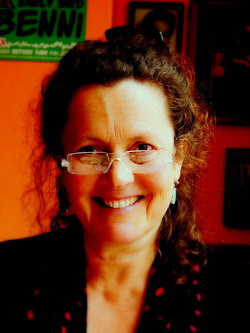A new study on the socioeconomic outcomes for people with spinal cord injury (SCI) has found those not covered by ACC had their income drop by 45 per cent 30 months after the injury, whereas those covered retained their income and standard of living levels.
The HRC-funded study by Massey and Otago University researchers recruited 118 people aged 16–64 years from each of New Zealand’s two spinal units (Auckland and Burwood). There were 93 participants covered by ACC and 25 not covered. Participants were followed with interviews at 6, 18 and 30-months post injury from 2007–2009.
Massey University Associate Professor Sarah Derrett says the research found that the non-ACC group were less likely to return to work, although this finding was not statistically significant. The non-ACC group were also more likely have insufficient household income to meet their everyday needs such as accommodation, food and clothing.
For the non-ACC group, median income declined by 45 per cent over 30 months (from $36,500 to $19,900) compared with a small increase in the ACC group (from $40,000 to $45,900).
“A key message from this research is that ACC performs very well in terms of both helping people return to work and preventing the downward spiral into poverty. However, at present, the types of supports available to New Zealanders not covered and with the same level of impairment are unfair,” Dr Derrett says.
The study’s principal investigator, Dr Martin Sullivan, from Massey’s School of Health and Social Services, says this study highlights the importance of ACC in New Zealand. “The scheme is the envy of many other countries. Our findings provide strong support for the extension of the scheme to those with non-traumatic SCI.”
In light of large surpluses from ACC last year it could be a good time to revisit the idea of extending ACC cover to those not currently eligible, he says. This would be in line with the principles of social equity as outlined in Sir Owen Woodhouse’s Report of the Royal Commission of Inquiry and which led to the establishment of ACC.
Emeritus Professor Charlotte Paul, from the University of Otago, says given the relatively small numbers of people in New Zealand incurring SCI each year, the idea of an initial trial to cover the small proportion of people with SCI who are not eligible for ACC would be a starting point for extending cover.
The results extend those from an earlier New Zealand study comparing socioeconomic outcomes for those with an injury (covered by ACC) with a matched group who had a stroke (not covered by ACC). The stroke group had a marked decrease in income and were also much less likely to have returned to work than the injury group covered by ACC.
News article courtesy of Massey University
